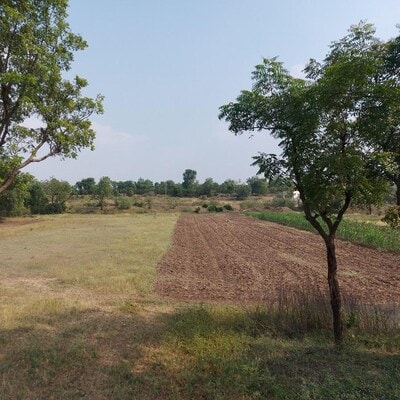Zimbabwe declared a state of emergency on Wednesday in response to the devastating drought that has hit much of southern Africa, and the country's president said it needed $2 billion in humanitarian aid.
The declaration was widely expected to follow similar measures in neighboring Zambia and Malawi, where El Niño-related droughts have destroyed crops and left millions in need of food assistance.
Click here to follow our WhatsApp channel
President Emmerson Mnangagwa said in a speech appealing for international aid that more than 80 per cent of our country has received below-normal rainfall due to the El Niño drought, and that his country's top priority was “to support all Zimbabweans. The goal is to secure food for all.” Zimbabweans must not succumb to hunger or starve to death.
He appealed to United Nations agencies, local businesses and faith groups to contribute to humanitarian relief.
El Niño is a naturally occurring climate phenomenon that causes parts of the Pacific Ocean to warm every two to seven years, and has a variety of effects on global weather. Southern Africa typically experiences below-average rainfall, but this year has been the worst drought in decades.
In Zimbabwe, the United Nations' World Food Program is already running a food aid program targeting 2.7 million people, nearly 20 percent of the country's population, between January and March.
The first few months of the year are traditionally known as lean season, a time when households run out of produce while waiting for the new harvest. But there is little hope of replenishing food stocks this year, and Mnangagwa said more people were likely to need food aid than previously predicted.
More than 60% of Zimbabwe's 15 million people live in rural areas, growing the food they eat and sometimes selling the small surplus to cover school fees and other expenses. Since there are relatively few participants in the cash economy, many will not be able to buy food even if it is available in the market.
Zimbabwe was once a regional agricultural powerhouse and grain exporter, but in recent years it has become increasingly reliant on aid agencies to avoid mass starvation caused by extreme weather events such as heat waves and floods.
Mr Mnangagwa's declaration will pave the way for aid agencies to mobilize international support for further aid, but many people may still be left without aid and the global hunger crisis and layoffs will continue. Because of limited resources, the most vulnerable are likely to be targeted. Humanitarian funding from wealthy governments.
Many areas of southern Africa are facing a food crisis due to the ongoing drought. In 2019, Zimbabwe declared a state of national disaster and appealed for humanitarian aid from international donors after a crop failure left tens of thousands of people in need.
In February, Zambian President Hakainde Hichilema declared the current drought a national disaster, saying almost half of the country's staple maize crop had been destroyed. According to the United Nations Children's Fund, more than six million people in Zambia, half of them children, are affected by the drought.
Less than a month later, Malawi's President Lazarus Chakwera announced that his country would provide more than $200 million in emergency humanitarian aid to address the drought that has affected 2 million households in 23 of the small country's 28 districts. He said support was needed.
The United Nations Children's Fund has announced that approximately 9 million people in Malawi, half of them children, are in need of assistance.
The U.S. Agency for International Development, the U.S. government's foreign aid agency, estimated that 20 million people in southern Africa needed food relief between January and March through its Famine Early Warning System network.
USAID said the effects of El Niño could extend these needs into early 2025 for many people in areas of greatest concern, including Zimbabwe, southern Malawi, parts of Mozambique and southern Madagascar. .



